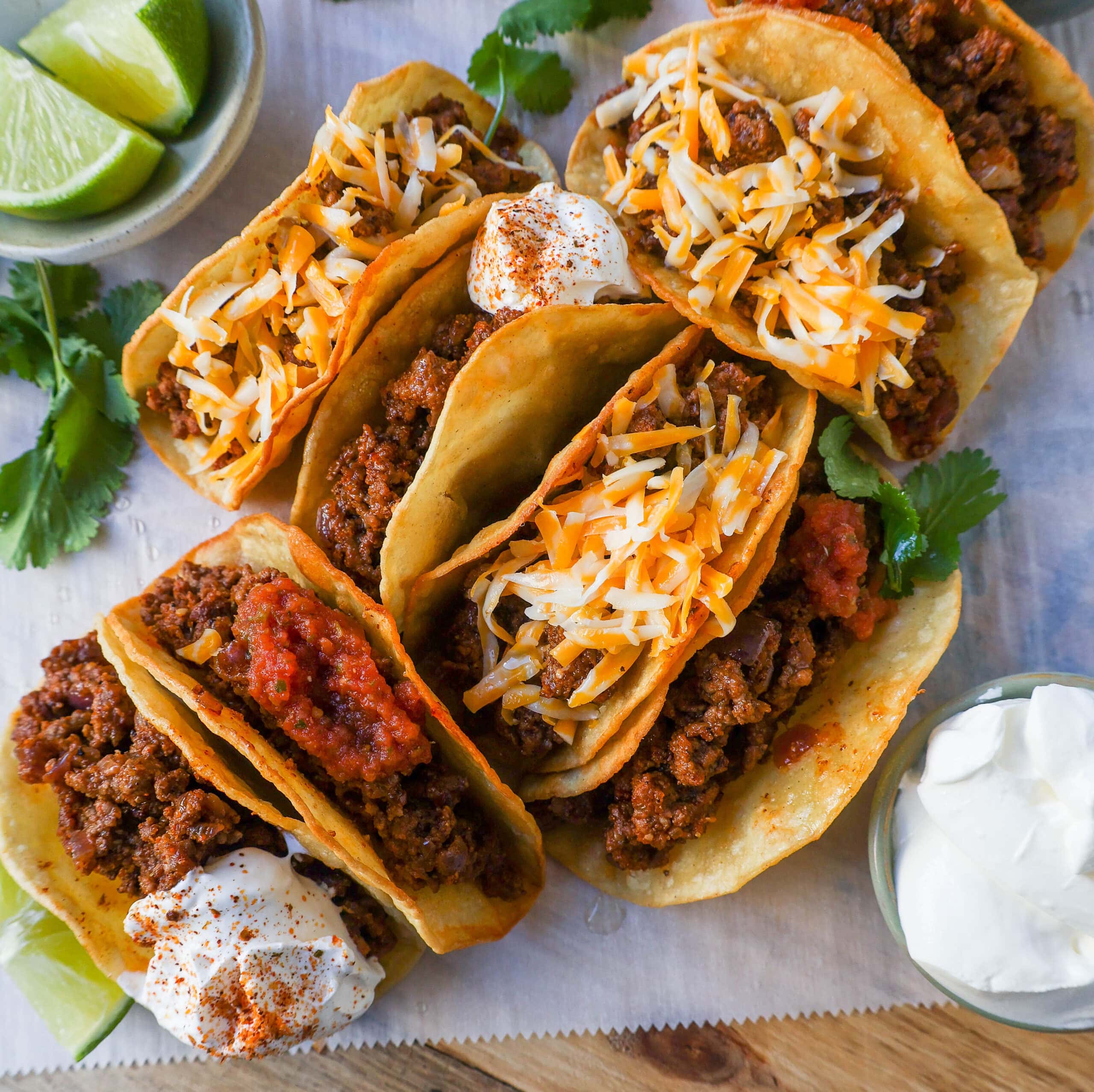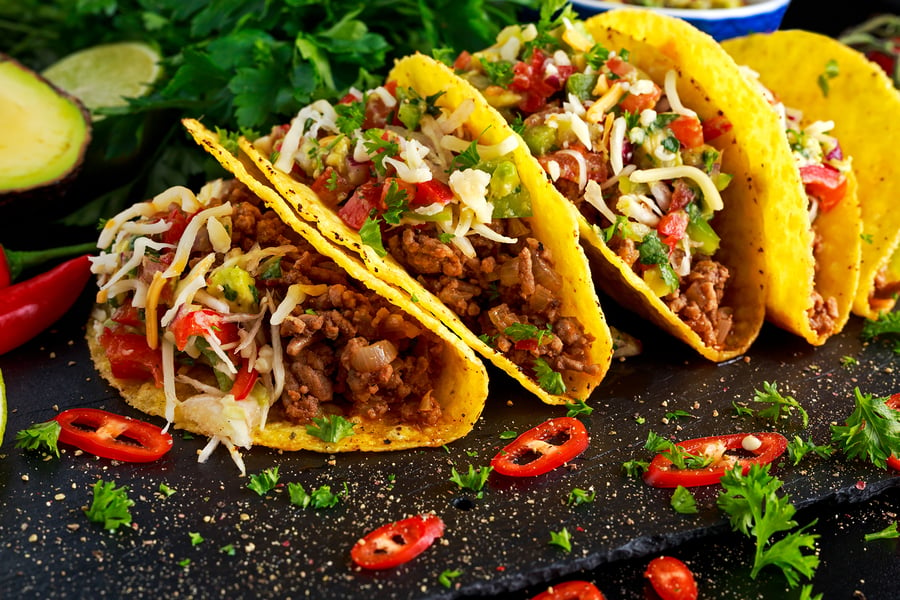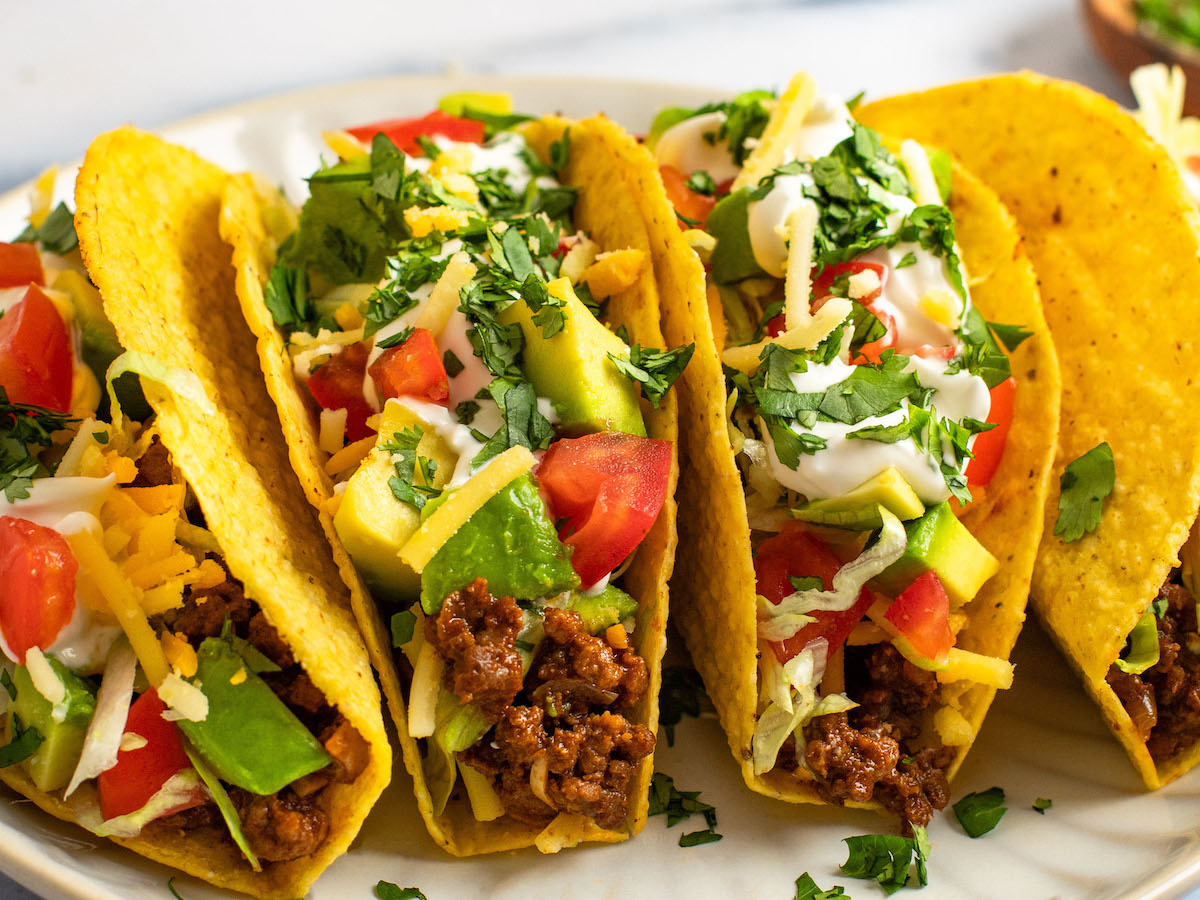In an era saturated with political discourse and the relentless churn of news cycles, a quiet yet profound movement is gaining traction: the prioritization of authentic human experience over manufactured spectacle. This sentiment is perhaps best encapsulated by the evocative phrase, "taco over Mar-a-Lago." It's not merely a whimsical comparison; it represents a deep-seated desire to shift focus from the often divisive and superficial realm of high-stakes politics to the grounding, unifying power of culinary culture.
At its core, "taco over Mar-a-Lago" is a declaration. It's a statement that the simple, communal joy found in a perfectly crafted taco, steeped in centuries of tradition and flavor, holds more intrinsic value and offers more genuine satisfaction than the opulent, often contentious, backdrop of Mar-a-Lago. This isn't about political affiliation; it's about a fundamental re-evaluation of what truly enriches our lives and connects us as people. It's about recognizing that while political events dominate headlines, the enduring legacy of culture, particularly food culture, quietly shapes our daily realities and fosters a sense of community that transcends fleeting power dynamics.
Table of Contents
- The Allure of "Taco Over Mar-a-Lago": A Cultural Statement
- Beyond the Headlines: The Simple Power of a Taco
- The Rich Tapestry of Taco Culture: More Than Just a Meal
- From Michoacán to Main Street: The Journey of the Carnitas Taco
- The "Taco Tuesday" Phenomenon: A Battle for Culinary Identity
- Innovating the Taco: From Smash Burgers to Slow Cooker Bowls
- Global Reach and Local Flavor: The Ever-Expanding Taco Universe
- Why "Taco Over Mar-a-Lago" Resonates: Prioritizing Authenticity
The Allure of "Taco Over Mar-a-Lago": A Cultural Statement
The phrase "taco over Mar-a-Lago" has swiftly become a cultural shorthand, representing a pivot from the often-stifling world of politics to the liberating embrace of everyday joys and shared experiences. Mar-a-Lago, for many, symbolizes a particular brand of power, exclusivity, and political theater. It's a place where high-stakes decisions are made, where headlines are generated, and where the focus is often on the powerful few. In stark contrast, the humble taco embodies accessibility, diversity, and communal celebration. It's a dish enjoyed by millions across socioeconomic strata, a culinary canvas that invites endless variations and personal touches. This isn't about diminishing the importance of political engagement, but rather about highlighting where true, lasting satisfaction and connection can be found. The allure of "taco over Mar-a-Lago" lies in its ability to remind us that culture, in its purest form, is built from the ground up – from shared meals, local traditions, and the simple act of breaking bread (or, in this case, a tortilla) together. It suggests that while political dramas unfold, life continues, and its richest moments are often found in the most unassuming places. This sentiment is a powerful counter-narrative, advocating for a return to values that foster unity and genuine human connection, rather than those that breed division and spectacle.Beyond the Headlines: The Simple Power of a Taco
Consider the inherent power of a taco. It's more than just food; it's a cultural icon, a symbol of Mexican heritage that has transcended borders to become a global phenomenon. Its simplicity belies its profound impact. A warm tortilla, a flavorful filling, and a sprinkle of fresh toppings – this basic structure allows for infinite creativity and regional variations. Unlike the often-complex and inaccessible world of high politics, the taco is democratic. It invites participation, experimentation, and personalization. The act of eating a taco is often an informal, joyful experience. It’s food meant to be held in hand, savored, and often shared. This contrasts sharply with the formal, often rigid environments associated with political power centers. The simple power of a taco lies in its ability to bring people together, fostering conversations and shared moments that are far removed from the often-divisive rhetoric of the news cycle. It’s a reminder that sometimes, the most impactful things in life are not the grand pronouncements or the lavish displays, but the quiet, consistent pleasures that nourish both body and soul. This fundamental truth is at the heart of the "taco over Mar-a-Lago" philosophy.The Rich Tapestry of Taco Culture: More Than Just a Meal
The world of tacos is incredibly diverse, reflecting the rich culinary heritage of Mexico and its subsequent global adaptations. It’s a testament to how a simple concept can evolve into a complex and beloved culinary art form. From street vendors to Michelin-starred restaurants, tacos appear in countless iterations, each telling a story of its origin and the hands that prepared it. The phrase "taco over Mar-a-Lago" truly highlights this depth of cultural richness.The Versatility of the Tortilla: Soft vs. Hard
At the heart of every taco is the tortilla, typically made from corn or wheat. The choice between a soft or hard shell is often a matter of preference and regional tradition. Soft tortillas, particularly corn tortillas, are foundational to authentic Mexican tacos, offering a pliable, warm embrace for the fillings. They allow the flavors of the meat, salsa, and toppings to shine through without distraction. Hard-shell tacos, while less traditional in Mexico, gained immense popularity in the United States, especially through fast-food chains. They offer a satisfying crunch and a different textural experience. As noted in the provided data, "Taco,分软皮的和硬皮的,各种成分含量均匀。" This simple distinction underscores the taco's adaptability to various palates and culinary contexts. Whether soft and pliable or crispy and crunchy, the tortilla is the unsung hero, providing the perfect vehicle for a universe of flavors.Burritos vs. Tacos: Understanding the Distinctions
While often grouped together in the broader category of Mexican-inspired cuisine, tacos and burritos have distinct characteristics. The data clarifies this: "Burrito,体积更大,谷物豆类含量更高." A burrito is typically larger, designed to be a complete meal wrapped in a single, larger flour tortilla, often containing rice, beans, meat, and other substantial fillings. Tacos, on the other hand, are generally smaller, meant to be eaten in multiples, and focus more on the interplay of a primary protein with fresh toppings and salsas. This distinction highlights the specific role each plays in a meal – the burrito as a hearty, self-contained unit, and the taco as a more delicate, customizable, and often more varied culinary experience. Both are beloved, but the taco's smaller format and emphasis on fresh, distinct components make it particularly suited for casual enjoyment and exploration of diverse flavors, reinforcing the "taco over Mar-a-Lago" ethos of accessible, delightful experiences.From Michoacán to Main Street: The Journey of the Carnitas Taco
To truly appreciate the depth of taco culture, one must delve into its regional specialties. One such masterpiece is Carnitas, a dish originating from Michoacán, a state in southwestern Mexico. As the provided data explains, "今天我们重点介绍的是墨西哥西南部米却肯州(michocan)的一种TACO做法,大名鼎鼎的卡尼塔斯(CARNITAS)." Carnitas, meaning "little meats," is a labor of love, involving pork that is slowly simmered in its own fat (or sometimes lard) for hours until it's incredibly tender, juicy, and caramelized. The process results in meat that is crispy on the outside and melt-in-your-mouth tender on the inside, bursting with rich, savory flavor. This traditional method speaks volumes about culinary dedication and the value of time-honored techniques. A Carnitas taco is not fast food; it's a testament to patience and skill, a dish that carries the legacy of generations. The journey of Carnitas from the bustling markets of Michoacán to the menus of restaurants across the globe, including establishments like the "上海la mesa taco店" mentioned in the data, illustrates the universal appeal of authentic, well-prepared food. It’s a journey that emphasizes flavor, heritage, and the shared human pleasure of eating something truly delicious – a far cry from the often-sterile and transient nature of political events. This journey is another powerful argument for "taco over Mar-a-Lago."The "Taco Tuesday" Phenomenon: A Battle for Culinary Identity
"Taco Tuesday" is more than just a catchy phrase; it's a cultural institution in many parts of the United States, synonymous with affordable, fun, and communal dining. It embodies the accessible and celebratory nature of taco culture, inviting people from all walks of life to partake in a shared culinary tradition. This weekly ritual underscores the unifying power of food, bringing families, friends, and communities together around a simple yet universally loved meal. It's a testament to the taco's ability to transcend its origins and become a staple in diverse households, fostering a sense of routine and anticipation that is often missing in the unpredictable world of politics.The Legal Battle for "Taco Tuesday": A Trademark Tale
Interestingly, the phrase "Taco Tuesday" has also been the subject of legal battles, highlighting its immense commercial and cultural value. As the provided data reveals, "塔可约翰(Taco John’s),美国最大的墨西哥连锁快餐企业之一,在1989年成为“塔可星期二”商标的拥有者。 他们曾经也想过独霸这句广告语,恨不得到处发警告函,让任何一个角落的餐厅都." For decades, Taco John's held the trademark for "Taco Tuesday" in 49 states (New Jersey being the exception). This ownership led to instances where they would send cease-and-desist letters to other restaurants attempting to use the phrase, sparking debate and frustration among smaller businesses and taco enthusiasts. This legal wrangling over a common culinary phrase underscores the tension between corporate ownership and public domain, between commercial interests and cultural traditions. The public's widespread adoption of "Taco Tuesday" ultimately proved more powerful than any trademark, with recent legal challenges successfully overturning the exclusive claim. This outcome reinforces the idea that some cultural phenomena, like the universal appeal of a taco, are too pervasive and beloved to be confined by legal technicalities. It’s a victory for the people, for shared culture, and for the spirit of "taco over Mar-a-Lago," where authentic community practices ultimately prevail over attempts at exclusive control.Innovating the Taco: From Smash Burgers to Slow Cooker Bowls
The taco's enduring popularity is also due to its incredible adaptability. It's a dish that constantly evolves, embracing new ingredients, cooking methods, and culinary fusions. This spirit of innovation keeps the taco relevant and exciting, demonstrating its dynamic nature in contrast to static political structures. Celebrity chefs and home cooks alike are constantly finding new ways to reinvent the taco. For instance, the data mentions how "Ree likes to serve burgers and tacos when there’s a big game on tv,With smash tacos, she’s combined the two into one delicious recipe." This "smash taco" concept, blending the crispy edges of a smash burger with the handheld convenience of a taco, is a prime example of culinary creativity. It takes two beloved comfort foods and merges them into a novel, delicious experience. The idea of "The tacos and the fixins are all set out in an" array for self-assembly further enhances the communal and customizable aspect of taco night. Beyond fusion, tacos also lend themselves perfectly to modern meal preparation techniques. The data points out, "These taco chicken bowls are a favorite,Iris eats hers on a tortilla, and we make bowls,All of the ingredients can be frozen in a bag, thawed and cooked in the slow cooker for easy meal prep." This highlights the practicality and convenience of tacos for busy lifestyles. Whether served on a tortilla or as a deconstructed bowl, the core flavors remain comforting and satisfying. The ability to prepare ingredients in advance and utilize slow cookers for easy meal prep makes tacos a versatile and accessible option for everyone, reinforcing the idea that "You'll find something for everyone with these recipes." This adaptability and user-friendliness further cement the taco's place as a cornerstone of modern culinary culture, a truly democratic food experience.DIY Taco Magic: Recipes for Every Palate
The beauty of tacos lies in their inherent "do-it-yourself" nature. Whether it's a simple ground beef taco or a more elaborate fish taco, the assembly process is part of the fun. The provided data gives us glimpses into this: "Top with the diced tomatoes and green chiles, taco seasoning and scallion whites,Scatter the processed cheese cubes over top,Bake until the ground beef is cooked through, about 45." These steps illustrate the straightforward process of creating a classic taco filling, inviting anyone to participate. The emphasis on fresh ingredients and customizable toppings means that every individual can tailor their taco to their exact preferences. This personal agency in food preparation contrasts with the often passive consumption of political news. It's an active, engaging process that yields immediate, tangible satisfaction. From the simplest ingredients to gourmet additions, the taco is a canvas for culinary expression, making it a perfect symbol for the idea of "taco over Mar-a-Lago" – a celebration of personal choice and genuine enjoyment over external impositions.Global Reach and Local Flavor: The Ever-Expanding Taco Universe
The taco's journey from a regional Mexican staple to a global culinary phenomenon is a testament to its universal appeal. It has successfully integrated into diverse food cultures, adapting to local ingredients and tastes while retaining its fundamental identity. This global expansion, driven by consumer demand and culinary innovation, further underscores the power of cultural exchange through food, a stark contrast to the often insular world of national politics. Consider the "baja style fish tacos recipe from food network" mentioned in the data. Baja fish tacos, originating from the Baja California peninsula, are a prime example of regional Mexican cuisine gaining international recognition. Their light, crispy fried fish, often topped with a creamy sauce and fresh cabbage, offers a distinct flavor profile that has captivated palates far beyond Mexico. Furthermore, the data mentions the opening of a new location "launched in partnership with taco bell franchisee diversified restaurant group, just opened in san diego — 1548 e,H street, chula vista, california." This highlights the expansion of taco culture through established fast-food giants, making it even more accessible to a broader audience. Even as it goes global, the taco retains its local flavors and regional variations, showcasing a dynamic balance between widespread appeal and authentic roots. This continuous growth and adaptation make the "taco over Mar-a-Lago" argument even stronger: cultural impact, unlike political power, flows organically and adapts to diverse environments.Why "Taco Over Mar-a-Lago" Resonates: Prioritizing Authenticity
The enduring resonance of the phrase "taco over Mar-a-Lago" stems from a deep-seated human desire for authenticity and connection in an increasingly superficial world. Mar-a-Lago, for many, represents a symbol of political showmanship, a stage where narratives are crafted and power is wielded. While these events undeniably shape our society, they often lack the tangible, immediate, and universally relatable joy found in simpler pleasures. The taco, on the other hand, is inherently authentic. Its origins are humble, its preparation often communal, and its consumption a direct, sensory experience. It represents a culinary tradition that has sustained communities for centuries, evolving organically rather than being manufactured for political gain. In a world craving genuine experiences, the taco offers a real, unpretentious connection to culture, history, and the simple act of shared nourishment. This preference for the genuine over the grand, the communal over the exclusive, is why the sentiment "taco over Mar-a-Lago" strikes such a chord. It's a call to prioritize what truly matters: the richness of human culture, the warmth of shared meals, and the enduring power of simple, authentic joys over the fleeting dramas of political spectacle.In conclusion, the concept of "taco over Mar-a-Lago" is far more than a catchy slogan; it's a profound cultural statement. It encapsulates a growing sentiment that the genuine, unifying power of culinary traditions and shared human experiences holds greater value and offers more lasting satisfaction than the often-divisive and transient world of high-stakes politics. From the rich heritage of Michoacán's Carnitas to the global phenomenon of "Taco Tuesday," the taco embodies authenticity, versatility, and accessibility, bringing people together across all walks of life. It reminds us that true richness lies not in opulence or political power, but in the simple, flavorful moments we share.
What are your thoughts on prioritizing cultural joys over political drama? Do you have a favorite taco memory that transcends the daily headlines? Share your insights and experiences in the comments below! And if this article resonated with you, consider sharing it with friends and family, or explore other articles on our site that delve into the fascinating intersection of food, culture, and society.



